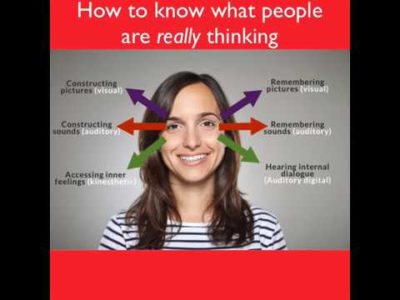Are you consciously aware of what is going on around you or inside of you?
How do you know what is really being said or motioned toward you?
Do you know if someone is lying or not?
Are you listening to your own internal signals as to what and how you check another’s signals, or have you got a way to know what someone else is signalling to you?
[note class=”info”]Sensory Acuity incorporates seeing, hearing, feeling (physically and emotionally), smelling and tasting.[/note]
Sensory Acuity is a critical piece of NLP and your life. It is important for you to be aware of:
- Feedback/information that indicates the extent to which you are on or off target in achieving your outcomes.
- Other people’s actions and reactions around certain situations/stimuli.
- Your own actions and reactions around certain situations/stimuli.
What about the telephone sales person who has an easy sale but doesn’t realise it and continues talking and eventually talks the person out of the sale?
Or have you ever discovered after the fact, that you did not pay attention to what was important to a loved one, and ended up missing a great opportunity or having to bail yourself out of a jam?
Or did you not pay attention to signs at work and were surprised by a reorganisation, or missed a potential opportunity?
[note class=”info”]In my experience, I have always found an opportunity to advance my career during a reorganisation – if I pay attention to what is going on, and take appropriate action.[/note]
Often we pay attention through our preferred representational system, ignoring all others, and miss subtle (or even obvious) cues, such as a change in a person’s tone of voice or skin colour, that are critical for achieving our outcomes.
(See our Glossary for more detailed information on: Modalities and Representational Systems)
Observing Other People’s Actions and Reactions
If you are coaching another person, delivering training to a class, negotiating with another person, sharing an intimate moment with a loved one – it is important to understand how people experience the world around them (preferred representational system) in order to more clearly express your ideas so they can see, or hear or get in touch with your message. As well, you should be perceptive of changes in the other person’s physiology, tone of voice, energy that may indicate a change in their internal thoughts or emotional state.
If so, you may need to stop what you are doing and do something different. And how often do we miss these signals and ‘continue doing what we have always done, only expecting different results this time’ – the definition of insanity!
When observing other people, you will want to notice:

- Words they use (predicates).
- Eye movements (see above) (eye accessing cues).
- Changes in skin colour/tone.
- Breathing.
- Voice quality.
- Posture/gestures.
- Changes in energy – many people with kinaesthetic (tactile) as a preferred representational system or who are visually impaired are very attuned to changes in energy.
Pay Attention to Your Own Internal and External Signals
Often we do not pay attention to what is going on inside ourselves. How often have you had a ‘gut reaction’ that said “No, don’t do this!” or “Yes, this is what I really want to do!” and you ignored it and later regretted your action or inaction. For some of us, the internal signals or physiological reactions are present and we are just not aware of them – maybe because we have ignored them for such a long time that they are now out of our conscious awareness.
Some of the internal or physiological responses you could start paying attention to are:
- Holding your breath. Do you hold your breath when you are stressed?
- A tightening in your stomach or chest
- A certain pain or twitch
- A feeling of joy, love or accomplishment — or are these feelings you tend to ignore?
- Internal representations (images/sounds/etc.) you create in your mind
[note class=”info”]And when you hold your breath your body does not get enough oxygen, which causes even more stress! When you notice you are holding your breath, take this as a signal to give yourself permission to breathe deeply at a relaxed pace.[/note]
I believe it is very important for me to understand what is going on inside of me.
For example: There are only two conversations in this world.
The first is the one I have with myself and the second is the one that I have with you.
If I do not feel good about myself or feel resourceful, this will be demonstrated in my conversation with you through my choice of words, my tone of voice, my body language, the energy coming from me. Even if you are not consciously aware of these signals coming from me, you will be at an unconscious level and react to them in some way.
Practice Your Sensory Acuity
This is a two-person exercise – A and B.
B’s job is to observe A. To simplify the discussion, let us assume A is a male and B a female.
- A closes his eyes and thinks of someone he dislikes.
- While A thinks about this person, A begins at the top of his head and slowly moves his attention down his own body noticing any physiological reaction to thinking about this person. For example: A may notice tension around his eyes, a pain in his shoulder or a heavy feeling in his stomach. As A is scanning his body, he tells B what he is observing.
- Once A finishes describing what he has observed, B tells A what she has observed. For example, she may have observed A’s eyes closed tightly, a red flushing around his neck, very shallow breathing, twitching of a finger on his right hand, a change in his tone of voice or an energy pushing her away from A
- Once step 3 is completed, A stretches and/or looks around the room – this is called a break state and clears the mind of the internal representations of the person A dislikes.
- A closes his eyes and repeats steps 2 and 3 while thinking of someone he likes.
- Break state by stretching and/or looking out the window.
- A may be surprised at the different internal reactions that he had between thinking of some he dislikes and someone he likes. He may also be surprised by the reactions that he was not aware of that B described to him. As a result of this exercise, A may discover that he really does telegraph his feelings/thoughts to others, even if it is at an unconscious level
- A chooses one of the two people he thought about earlier and does not tell B which person it is. He closes his eyes and thinks of this person
- From what she observed earlier, B tells A who A is thinking about. Almost like magic!
A Caution
For sensory acuity, we stick with what we have seen, heard, felt, tasted or smelled. We do not project an opinion or guess. For example, you may observe that my lips curl up at the ends in the form of smile (a fact). You may however tell me that I am happy (a guess, hallucination or mind read). The smile may be a result of the fact that I have a bad case of gas!
‘Mind reading’ can potentially get us into trouble. Consider someone who is angry versus someone who is very determined and focused in getting something done. The external cues may be quite similar. If we ask the person who is determined why they are angry, they may indeed get angry with us for making an erroneous judgment about them.
Sensory awareness is part of the basic NLP training on our Seven Day NLP Practitioner Training Course




